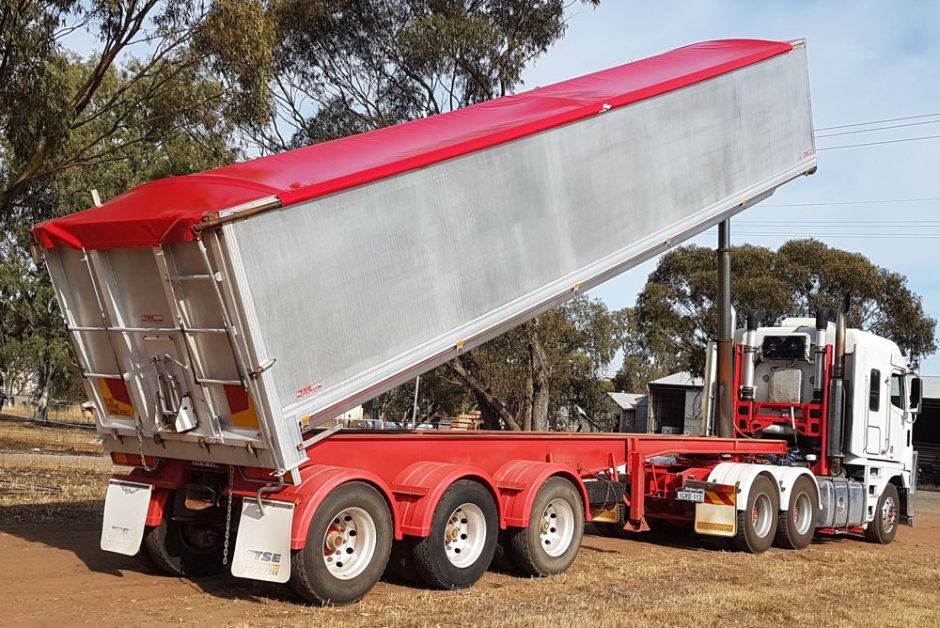Truck drivers have an important job transporting all kinds of cargo safely to its destination. When hauling loose materials like gravel, produce, or pipe, it’s critical to cover the load properly. Commercial truck tarp system from experts like West-Trans, provide an efficient way to secure cargo while in transit. Read on to learn how truck tarps work and why using them matters.
What Are Truck Tarps?
Truck tarps are heavy-duty canvas covers stretched over the open top of a trailer or truck bed. They create a barrier between the cargo and elements like rain, wind, sunlight and road debris. The tarps are made of tightly woven fabric or vinyl coated polyester that resists tearing or damage.
Truck tarps are secured using straps, ropes, or a mechanical roller system. They come in a range of sizes to accommodate all truck and trailer lengths. When not needed, the tarps roll or fold up for compact storage.
Benefits of Using Truck Tarps
Tarps deliver several important benefits:
Protect cargo from moisture – Tarps prevent rain accumulation and spray from wet roads from saturating the cargo. Certain loads like animal feed or fertilizer have to stay dry.
Guard against blowing debris – Tarps block windborne dust and dirt from collecting on cargo. They also prevent loose small items from blowing away.
Provide UV protection – Tarps limit the sun’s ultraviolet rays from bleaching or degrading loads like plastic pipe or coiled metal roofing.
Reduce covering labor – Throwing tarps over loads takes far less time than screw-on solid covers or shrink wrap. Easy on/off saves on loading/unloading costs.
Improve safety – Properly secured tarps prevent debris or cargo pieces from blowing onto the road and causing hazards for other vehicles.
Keep materials contained – Cargo like gravel, produce, loaded pallets or construction trash stays neatly inside the tarp envelope when traveling.
Choosing the Right Truck Tarps
With rugged construction and weather resistance, tarps are a smart choice for covering hauls. But truck operators need the right tarp for each application:
- Lumber, metal, and pallet loads do well with standard canvas tarps. The fabric allows ventilation to prevent condensation buildup.
- For fine powders and small particles, consider a mesh tarp. Tiny items won’t get trapped in the weave or spill through tears.
- Bulk products like grain or fertilizer require tarps with spill shields on the sides for extra containment.
- Delicate cargo like automobiles or glass need soft-top tarps to prevent abrasions or scratches during transport.
For oversized loads, choose an extra wide single tarp or double tarp system to ensure full coverage.
Properly Utilizing Tarps
To leverage tarps successfully:
- Inspect for rips or tears before covering each load. Look for fraying straps or ropes too.
- Make sure the tarp size suits the trailer space. Overhang is needed to keep rain runoff out.
- Pull the tarp fully over the load evenly and securely fasten all straps and ropes. Eliminate gaps.
- Check ties frequently en route to ensure the tarp hasn’t worked loose. Re-tighten if needed before continuing.
With heavy use, truck tarps eventually wear out and need replacement. Make inspecting and replacing tarps part of routine fleet maintenance.
Trusting Your Cargo to Tarps
For anyone making a living hauling loads down the highway, properly securing cargo should be top priority. Don’t cut corners with subpar tie-downs or worn-out tarps full of holes. Investing in a quality commercial truck tarp system pays off through reliableperformance trip after trip.
Take the time to select the right tarp for each type of cargo you commonly transport. Consistently utilize tarps to shield freight from weather and road debris. Well-protected cargo brings peace of mind and satisfied customers.

